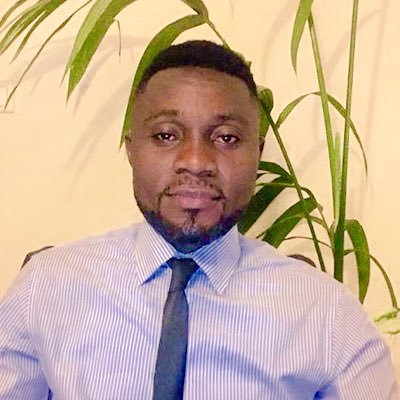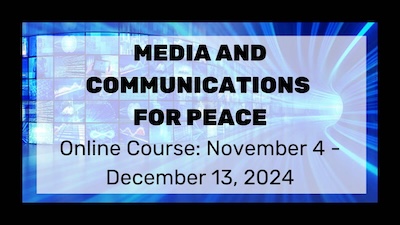
By Hippolyte Eric Djounguep, May 24, 2020
The violent conflict between the Cameroonian authorities and the separatists of the two English-speaking regions since October 2016 is steadily worsening. These regions were sub-mandates of the League of Nations (SDN) from 1922 (date of the signing of the Treaty of Versailles) and sub-tutelage of the UN from 1945, and administered by Great Britain until 1961. Better known as the “Anglophone crisis”, this conflict has taken a heavy toll: nearly 4,000 dead, 792,831 internally displaced over 37,500 refugees of which 35,000 are in Nigeria, 18,665 asylum seekers.
The UN Security Council held a meeting on the humanitarian situation in Cameroon for the first time on May 13, 2019. Despite the United Nations Secretary General’s call for an immediate ceasefire for a comprehensive response to Covid-19, the fighting has continued to deteriorate the social fabric in these regions of Cameroon. This crisis is part of a series of conflicts that have marked Cameroon since 1960. It is one of the most significant episodes, measured as much by the number of actors involved and their diversity as by its stakes. Stakes perceived from an angle still reflect the not always broken links filled with images and anachronistic representations of a colonial past, and a perspective which over the years has not fully evolved.
A conflict covered with a priori staggered with respect to reality
The perception of conflicts in Africa is built by a number of mechanisms, some of which are often echoed by media and other channels of knowledge transfer. The manner in which the media portrays the anglophone crisis in Cameroon by a fringe of the international and even national press still reveals a discourse that is struggling to detach itself from a vision supposedly under supervision. Speech sometimes littered with representations, clichés and pre-independence prejudices continues today. Some media and other canals of knowledge transmission in the world and even in Africa maintain prisms and paradigms that allow this colonial and postcolonial image of Africa to flourish. However, these stereotypical representations of the African continent obscure or undermine the efforts of demarcation of another media category: intellectuals and scholars that do not let themselves be carried away by this post-colonizing vision by opting for verified information and issues that make Africa, the continent made up of 54 countries, as complex as every other continent in the world.
The anglophone crisis in Cameroon: how to qualify it?
The anglophone crisis is presented in some international media tabloids and other broadcasting canals as belonging to the group of events labelled “natural disasters” – an easy qualification and naturalization for social events that regularly occur in Africa which the media is aware of. Being insufficiently aware, they “blame” the Yaounde regime (capital of Cameroon) wherein the “longevity and negative governance has brought about the war”. The head of state of the Republic of Cameroon in the person of Paul Biya is always mentioned in all negative acts: “lack of political ethics”, “bad governance”, “presidential silence”, etc. What is worth putting at the lamplight is neither the veracity nor the gravity of the reported facts but the absence of alternative explanations of certain speeches.
Ethnic question?
The naturalization of this war on the African continent unfolding through the evocation of ethnic factors is a fundamental dimension of the colonial discourse on Africa that continues today. The reason this conflict is ultimately considered as only a natural phenomenon is located more broadly on an axis which opposes nature and culture and of which we find various evocations in a certain literature. “The Anglophone crisis” is often described as a phenomenon that cannot be explained rationally or almost. The point of view that favours natural causes in the explanation of war very often develops an essentialist discourse. This reinforces by mixing with the speech an apocalyptic image, wherein we find themes such as “hell”, “curse” and “darkness” in particular.
How it should be evaluated?
This assessment is more regular and sometimes decided in certain media and a significant part of the canals of knowledge transmission. From the beginning of the stalemate of the Anglophone crisis on October 1, 2017, it was understood that “this probably results in a new fragmentation of Cameroonian politics and the spread of local militias rooted in tribal loyalties or the hell of war between tribes”. Africa is now watching Cameroon. But beware: terms such as “tribe” and “ethnic group” are loaded with stereotypes and received ideas, and decalcify the substance of the reality of things. These words, in the understanding of some people, are close to barbarism, savagery and primitive. It should be noted that, in one description, the fighting doesn’t oppose factions having chosen the option of war to the detriment of another, but they seem to impose on them since they are in some so “trained”.
A litany of negative words
What usually transpires about the “Anglophone crisis” is a scene of chaos, confusion, looting, shouting, crying, blood, death. Nothing that suggests battles between armed groups, officers conducting operations, attempts at dialogue initiated by the belligerents, etc. The question of its merits is ultimately not justified since this “hell” would have no basis. One could understand that “Cameroon is a serious setback for the efforts of international organizations to help Africa solve its wars”. Especially since “according to a recent UN report, the Anglophone crisis in Cameroon is one of the worst humanitarian crises, affecting about 2 million people”.
Traumatic images too
Admittedly, one category of media claims that “the clashes in Cameroon are horrible and complex”. These sufferings are real and remain to a large extent unspeakable. Moreover, the regular accounts of these sufferings, the reasons for which we do not explain, are especially compassionate in the face of what is fatality peculiar to Africa and for which no one is really responsible. From the analysis of the French sociologist Pierre Bourdieu, speaking of images of television news from the world, such narratives ultimately constitute “a succession of seemingly absurd stories that end up all alike (…) ‘events appeared without explanation, will disappear without solutions’. The reference to “hell,” “darkness,” “explosions,” “eruptions,” helps to put this war in a separate category; that of inexplicable crises, rationally incomprehensible.
Images, analysis and comments suggest pain and misery. In the Yaounde regime, there is lack of democratic values, dialogue, political sense, etc. Nothing he possesses is part of the portrait that is offered of him. It is possible to describe him also as a “brilliant planner”, a “competent organizer”, a manager with some skills. One can legitimately suggest that the fact of having been able to maintain a regime for more than 35 years despite many twists and turns can earn him these qualifications.
Cooperation on new bases
The naturalization of the Anglophone crisis in Cameroon, the solution of an international intervention to put an end to it and the absence in certain media speeches of the voices of the actors in conflict and of discordant voices reveal both the persistence of the relationship and post-independent power. But the challenge lies in the development of a new cooperation. And who says new cooperation says new vision of Africa. It is therefore necessary to politicize and cross the glances on Africa to seize the stakes and lead a reflection devoid of racial prejudices, clichés, stereotypes and above all much more transcend this senghorian thought that “emotion is negro and reason is Hellene”.
A sentence more than unfortunate and not without avatars. Senghor’s work should not be reduced to this out-of-context phrase. Unfortunately, many authoritarian and totalitarian African states have been accepting for decades the socio-political and economic ideas and prejudices that are sweeping across Africa, those from North to South Africa. Other areas are not spared and do not escape a large number of a priori and representations: economic, humanitarian, cultural, sports and even geopolitical.
In contemporary African society, which is more sensitive to what is given to see than to what is given to hear, the “gesture-word” of elucidation is a very precious way of sharing something exhilarating, innovative and qualitative. The source of existence is found in the first “yes” that the challenges, evolutions and transitions underway in the world impose. These are the requirements that underpin expectations. Sign of an uncontrolled power, the media’s speech wants to highlight the news in all its components for a decent and concerted development.
The flow of information developed in the international press, research whose quality is perceptible due to the depth of analysis are all things that take us away from ourselves and free us from any concern for self-justification. They call for letting information transform states, “psychoanalyzing” habits to bring them into line with globalization. Thus, according to the exegesis of the media’s speech, “analysis is at the same time reception, promise and sending”; to retain only one of the three poles would not account for the very motion of the analysis.
However, all the credit goes to certain personalities of the international press, the academic and scientific world who impose the duty to offer a sign and a word which say the stakes and the ambitions of an Africa exit from the paradigms worn and worn out. It is not a question for the latter to make a magical act that would compel circumstances to be favourable to Africa; nor does it mean that all of the continent’s projects be approved. Since it refers to strategic information that makes all things new, since it creates confidence in the future, they are true sources of peace and hope; they open the future and guide a renewed life dynamic. They also attest to the presence of happiness in failures as well as in successes; in assured marches and in wanderings. They provide neither uncertainties of human life nor the risks of projects or responsibilities, but support confidence in an even better future. However, it is not a question of confusing the legitimate diversity with juxtaposition neither of convictions and individual practices (simple plurality) nor of assimilating the unity of the senses with the imposition to all of a conviction and a unique practice (uniformity).
This image of Africa is not only exogenous and only experienced; it is also co-produced and sometimes staged from within the continent. It is not a question of falling into the pitfall “hell, it is the others”. Each and everyone faces their responsibilities.
Hippolyte Eric Djounguep is a journalist and geopolitical analyst for the French magazine Le Point and contributor to the BBC and the Huffington Post. He is the author of several books including Cameroun – crise anglophone: Essai d’analyse post coloniale (2019), Géoéconomie d’une Afrique émergente (2016), Perspective des conflits (2014) and Médias et Conflits (2012) among others. Since 2012 He has made several scientific expeditions on the dynamics of conflicts in the African Great Lakes region, in the Horn of Africa, in the Lake Chad region and in Ivory Coast.









One Response
It’s really sad to learn that French Cameroun troops continue to kill, loot,rape, etc. innocent English speaking people of Ambazonia who are seeking for the restoration of their legitimate Independence. The SG of the UN declared a ceasefire because of Coronavirus attack on the world, but the government of French Cameroun continue to assault, kill, destroy, Ambazonians.
The most shameful thing is that the rest of the world turns its eyes away from blatant injustice.
Ambazonia is determined to fight and free itself from neocolonialism.